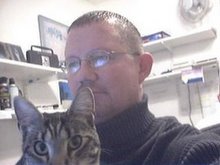Source- http://minneapolis.fbi.gov/dojpressrel/pressrel11/mp021111.htm
Earlier today in federal court in Minneapolis, local auto-mogul Dennis Earl Hecker, age 58, of Medina, was sentenced to 120 months in prison for crimes committed in connection with his scheme to defraud financial lenders and others out of millions of dollars. United States District Court Judge Joan N. Ericksen specifically sentenced Hecker on one count of conspiracy to commit wire fraud and one count of bankruptcy fraud. He was originally indicted on February 10, 2010, and pleaded guilty on September 7, 2010. In addition, Hecker was ordered to pay more than $31 million in restitution. He will remain in custody.
In imposing the sentence, Judge Ericksen said, "The actions you've taken are not consistent with someone who can be trusted, and you have not been as truthful as you could have been in the court system. Therefore, you do not get a break. You're going to get the full 10 years, which is appropriate and necessary. Behaving like a scoundrel is not tolerated in the court system."
U.S. Attorney B. Todd Jones added, "We are very pleased with today's sentence. It brings closure to a difficult investigation and prosecution. Although the victims in this case were primarily corporate entities and not individuals, and the losses resulting from the scheme were far less than what we have seen in other recent fraud cases, the severity of the sentence should serve notice that we will aggressively pursue those who lie, cheat, and steal and then seek refuge in the bankruptcy court."
Following sentencing, Col. Mark Dunaski of the Minnesota State Patrol, which initiated the investigation into this matter, said, "The sentencing of Mr. Hecker marks the end of a long and complicated investigation involving several law enforcement agencies. Complaints from Minnesotans are what prompted the investigation, and we hope there is a sense of justice for the victims impacted by Mr. Hecker and his criminal associates." The initial complaints were concerning tax, title, and licensing fees that Heckers' dealerships failed to pay when people purchased vehicles, although those complaints quickly led to the fraud investigation that resulted in federal charges being filed against Hecker and several of his business associates.
For many years, Hecker owned and operated numerous Minnesota auto dealerships and businesses that provided fleet vehicles to car rental companies. Those businesses operated under different corporate names but, collectively, were known as the "Hecker organization." In his plea agreement, Hecker admitted that from November of 2006 through June of 2009, he conspired with others to defraud Chrysler Financial Services and other commercial lenders from which he and the Hecker organization borrowed money for business operations.
In particular, in the fall of 2007, he conspired with Steve Leach and others to present fraudulent documents to Chrysler Financial in an effort to obtain $80 million in financing for the purchase of 5,000 vehicles from Hyundai Motor America. Among the documents submitted to Chrysler Financial was a letter from Hyundai Motor America that had been altered to benefit Hecker and the Hecker organization. The altered letter was transmitted via interstate wire transfer to Hecker himself, who then provided it to Chrysler Financial, knowing it was fraudulent.
Documents provided to Chrysler Financial also failed to specify the true nature and value of the collateral acquired by Hecker and the Hecker organization to secure the financing requested. Specifically, Hecker omitted details of the incentive payments he and the Hecker organization received from Hyundai Motor America, even though those payments totaled more than approximately $17.2 million and were material to the lender, Chrysler Financial. As a result of those false statements and misrepresentations, Chrysler Financial loaned Hecker and the Hecker organization more than $80 million and ultimately lost more than $10 million.
Ralph S. Boelter, Special Agent in Charge of the Federal Bureau of Investigation's Minneapolis Field Office, which also worked on the investigation of this case, said, "The FBI works diligently to investigate individuals and businesses that are not truthful with the representations they make to financial institutions. Fraudulent representations are taken seriously by the FBI because the damage that type of criminal activity causes. As in this case, it negatively impacts those individuals and businesses that legitimately seek financing."
According to Hecker's plea agreement, he also misled Chrysler Financial into financing Suzuki vehicles. Again, Hecker failed to inform the lender that the Hecker organization had received significant incentives from American Suzuki Motor Corporation. This particular fraudulent conduct was accomplished by removing material portions of Suzuki purchase contracts before providing them to Chrysler Financial.
When Chrysler Financial learned about the missing contract addendums, it insisted on receiving the incentive money. Hecker agreed to turn it over but, instead, continued the fraud scheme by providing the altered Suzuki contract to other lenders, including U.S. Bank, in an effort to obtain financing from them. As a result of those actions, the other lenders suffered a collective financial loss of more than $10 million.
Speaking of the efforts of the IRS agents on worked on this case, Kelly R. Jackson, Special Agent in Charge of the IRS Criminal Investigation Division, St. Paul Field Office, said, "High-ranking corporate officials hold positions of trust not only in their companies but also in the eyes of the public. That trust is broken when such officials abuse their power and commit crimes. With both law enforcement and financial investigation expertise, our agents are uniquely qualified to work with state and federal law enforcement agencies on these types of cases by 'following the money.' And we are very pleased with the successful resolution of this investigation due to the cooperative efforts of our law enforcement partners at the FBI and the Minnesota State Patrol."
The purpose of this fraud scheme, at least in part, was to fund Hecker's extravagant lifestyle. In an effort to maintain that fraud, Hecker carried out a cover-up and engaged in communications meant to lull creditors. Moreover, in an effort to avoid paying his debts, Hecker filed personal bankruptcy in June of 2009, seeking to discharge, among other amounts owed, the $10 million debt to Chrysler Financial.
After filing bankruptcy, however, Hecker admittedly concealed assets from the bankruptcy trustee. For example, he transferred $33,057 into someone else's bank account, over which he exercised control. He also transferred approximately $80,000 to that same individual, arranging for that individual to deposit the money, with instructions to return it to him later.
************************************************************************
Report IRS Tax Fraud by Calling 1-888-482-6825 or by visiting
































